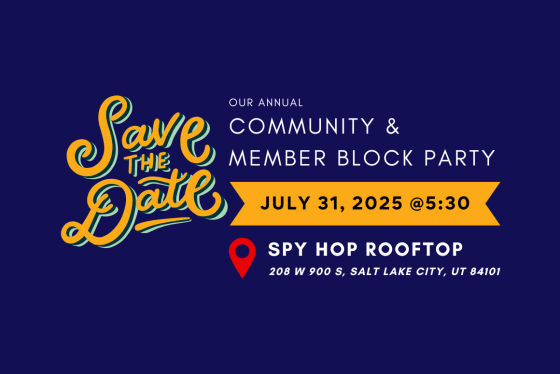The federal court today entered a judgment against West Valley City and its police chief in a case brought by three former West High School students over a 2010 school-based “gang sweep” that prompted a class action lawsuit by the ACLU of Utah and the ACLU Racial Justice Program.
Plaintiffs and ACLU Call for Changes to City Police Policy and Practice.
FOR IMMEDIATE RELEASE:
December 7, 2015
SALT LAKE CITY— The federal court today entered a judgment against West Valley City and its police chief in a case brought by three former West High School students over a 2010 school-based “gang sweep” that prompted a class action lawsuit by the ACLU of Utah and the ACLU Racial Justice Program. As part of its offer of judgment, the city disclaimed liability and offered a total of $50,000 to the three plaintiffs inclusive of all claims, attorney fees, and costs.
“While the monetary part of this judgment is gratifying, we brought this case to change the way police do business, especially the way they treat kids of color,” commented Kevin Winston, father of one of the three student plaintiffs. “We hope West Valley City Police Department will make real changes to make sure that their officers treat all kids fairly and respectfully, especially in school.”
The judgment is part of Winston v. Salt Lake City Police Department, which named multiple law enforcement and school district defendants. The case was filed in 2013 in response to a police action at West High, wherein over a dozen joint-agency gang task force officers entered the school during school hours. Officers detained students on school property, interrogated them about alleged gang affiliations, and photographed them holding signs listing their purported gang affiliations. The students’ personal information was entered into a police database, without any evidence of actual criminal activity. All students detained, interrogated, and documented that day were racial minorities.
“Though we will continue to vigorously pursue this case against the remaining defendants, the case against West Valley and its police chief ends today,” commented ACLU of Utah Legal Director John Mejia. “Now the question becomes, how can West Valley ensure that an incident like this never happens again? There are many practical steps they can take, and community members should push their leaders to take those steps.”
According to the ACLU of Utah and Racially Just Utah, a partner organization working on racial justice issues in local schools, West Valley should adopt several critical policies, including:
- There should be a written prohibition on allowing gang unit officers to visit elementary, middle, and high schools during school hours for the purpose of detaining and interrogating students about alleged gang affiliation.
- West Valley should not allow police officers to interrogate and search kids at school unless the officer believes a child has committed a crime, and should require that a parent or guardian be present for any questioning.
- West Valley City PD should discontinue and prohibit, immediately and absolutely, the practice of taking “mug-shot” style photos of juveniles holding whiteboards containing information about their purported gang affiliations and monikers.
- West Valley City Police Departments and partner schools should regularly review school-based arrests and interventions (including the racial demographics associated with such actions) for assessment and improvement. This information should be shared and discussed with community stakeholders.
“The gang sweep at West High was a wake up call for many parents and community members,” asserted Nubia Pena, Coordinator of Racially Just Utah. “We don’t have to compromise kids’ rights and dignity to protect their safety. The data overwhelming shows that those compromises and indignities disproportionality fall on kids of color.”
The organizations have developed an extensive list of policy prescriptions (available for download at the bottom of this page) that can help to West Valley and any other interested city in Utah prevent the violation of students’ rights in public schools. Such policy solutions are a critical step toward keeping students in the educational system, rather than pushing them into the criminal justice system. These policy prescriptions can be found at www.acluutah.org.
“Achieving racial equity in policing is about more than spoken assurances: it takes concrete action and commitment. Written policies must be enforced at the department level, and at the same time, meaningful training must be provided to root out inequitable practices at the individual level,” said Courtney Bowie of the ACLU’s Racial Justice Program.
###

